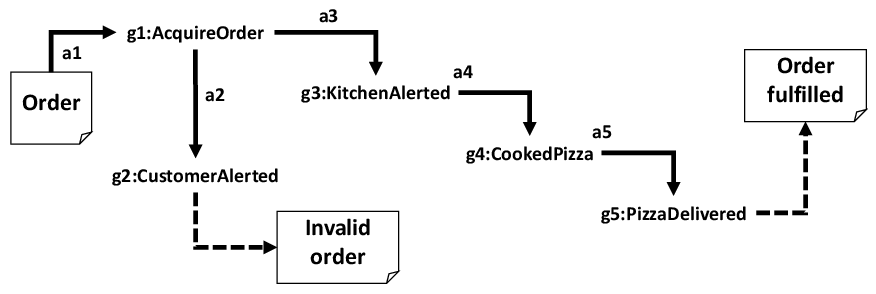- The paper introduces an agent-based AI framework that shifts from rigid task-based models to adaptive, goal-driven agents in business process development.
- It leverages LLMs and Generative AI for autonomous decision-making, enabling real-time adaptability to dynamic business environments.
- The approach enhances process flexibility and resilience while highlighting challenges in ensuring transparency, trust, and ethical governance.
An Agentic AI for a New Paradigm in Business Process Development (2507.21823)
Agent-based AI represents a transformative approach in the field of business process (BP) development, emphasizing autonomy, adaptability, and goal-orientation. In the paper "An Agentic AI for a New Paradigm in Business Process Development" (2507.21823), a novel model utilizing Agentic AI to reformulate business process design is proposed, contrasting sharply with traditional task-based BP models.
Traditional vs. Agent-Based Approach
Conventional task-based BP models typically rely on predefined sequences and static rules to guide the execution of business operations. This approach is limiting in dynamic and adaptable organizational ecosystems, where constant changes necessitate a more flexible model. Instead, the proposed agent-based method organizes business processes around goals, business objects, and autonomous agents. These agents are capable of making decisions, initiating actions, and adapting to changing environments without direct human instruction, supported by advanced AI technologies such as LLMs and Generative AI.

Figure 1: Agent-based workflow for the pizza delivery process.
Conceptual Framework
The agent-based model redefines process modeling elements. Instead of sequential tasks, the methodology uses goals, information objects, and agents. A goal is a desired state represented by business objects like documents or data records, the creation, modification, reading, or destruction of which indicates a step toward process completion.

Figure 1: Agent-based workflow for the pizza delivery process.
Goals are defined not as static outcomes but as dynamic targets reached through multiple pathways depending on the context, enabling agents to take various actions based on the specific situation and constraints at hand. This novel methodology leads to an indeterminate workflow structure that is more adaptive to changing requirements.
Critical to this approach is a formal representation where each agent is defined as a 6-tuple:
Agent=(aID,Ca,OTa,ORa,OFa,ga)
This structure allows for a precise encapsulation of the agent’s identity (aID), competencies (Ca), triggering objects (OTa), resource objects (ORa), the final objects released after fulfilling its goal (OFa), and the ultimate goal (ga) for which the agent was purposed.
\section{Performance and Evaluation Metrics}
The agent-based methodology offers significant modifiability and flexibility by utilizing autonomous agents driven by a combination of LLMs and GenAI techniques. By employing a goal-driven approach, the system is inherently more adaptive and resilient to changes and uncertainties often seen in dynamic business settings. These intelligent agents possess capabilities extending from language understanding to reinforcement learning and are designed to operate through partially autonomous decision-making systems.
The proposed framework's efficacy is manifested in its ability to adapt BP operations in real-time, handle unforeseen scenarios, and optimize for various objectives without needing constant human intervention. This approach contrasts starkly with traditional models, which are often rigid and susceptible to disruption.
Nonetheless, substantial challenges persist primarily in how to measure, ensure, and maintain the trustworthiness and transparency of these systems, especially in contexts involving significant autonomy and control.
\section{Concluding Thoughts
The proposed paper elucidates a vital shift in how business process automation can be conceived and implemented, emphasizing a transition from traditional task-based models to more dynamic agent-based structures. By prioritizing business objectives over predefined task sequences and employing agentic AI, the paper posits an automation framework that thrives in dynamic and ever-evolving business environments.
While offering significant advantages in terms of flexibility and real-time adaptability, the implementation of agentic AI systems requires carefully constructed governance and ethical guidelines to manage autonomy, ensure safety, and sustain transparency. As such, while the promise of agentic AI is profound, its deployment calls for meticulous forethought and ongoing oversight.
The research provides a comprehensive framework for creating intelligent and goal-driven business processes harnessing the potential of agentic AI, marking a progressive direction for both business strategy and technological integration. Future work in AI-driven automation must continue to explore and address the complexities and ethical dimensions of autonomous systems operating in business contexts.
